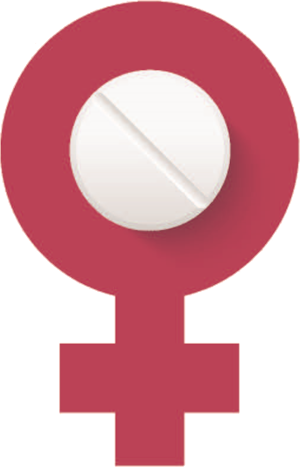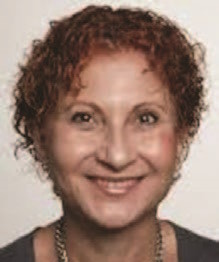Does Menopause Cause ADHD?
Jeanette Wasserstein, PhD
Download PDF
Worsening depression, anxiety, and new onset of poor emotional regulation are well known problems that often emerge during “the change” of life. There are two stages of this change, perimenopause and menopause. Perimenopause is the transition period prior to actual menopause, when all menstrual periods stop for at least a year. For most women perimenopause begins as they enter their early to mid-forties, while the average age for menopause in the United States is fifty-one.
 During these transition years some women also notice increasing brain fog, forgetfulness, and poor executive functioning, in addition to the more common emotional changes. For some women these cognitive changes are entirely new, while for others they represent worsening of vulnerabilities that had been there for most of their lifetime. That is, some had already been diagnosed with ADHD or suspected that they had it; while for others, these changes signal progressive brain dysfunction, which may be especially frightening. In either case, the changes can be so severe that some women seek medical help because they are concerned that they may be getting Alzheimer’s disease or another form of dementia.
During these transition years some women also notice increasing brain fog, forgetfulness, and poor executive functioning, in addition to the more common emotional changes. For some women these cognitive changes are entirely new, while for others they represent worsening of vulnerabilities that had been there for most of their lifetime. That is, some had already been diagnosed with ADHD or suspected that they had it; while for others, these changes signal progressive brain dysfunction, which may be especially frightening. In either case, the changes can be so severe that some women seek medical help because they are concerned that they may be getting Alzheimer’s disease or another form of dementia.
Lurking behind these changes in both mood regulation and cognition are changes in levels of female sex hormones. The perimenopausal and menopausal years are associated with these fluctuations, particularly fluctuations in estrogen. Estrogen is the major female sex hormone which is responsible for the development and maintenance of female sexual characteristics, such as voice, fat distribution and curves, lustrous hair during pregnancy, and even sculpting of female brain organization during gestation. For example, women are well known to generally have better language processing abilities than men, but weaker processing of spatial relationships.
Less well known are observations that ADHD women may respond differentially to stimulants during different points in their menstrual cycle. In particular, for some women stimulants appear to have less impact during the second half of the cycle when estrogen levels fall. In addition to the roles of estrogen described above, it has fundamental neurotropic and neurophysiological actions. That is, estrogen helps repair brain tissue and support the actions of key neurotransmitter substances, such as dopamine and acetylcholine. Both are critical in the remediation of ADHD and memory and learning functions.
Thus, awareness of changing hormonal status can sometimes be critical in titration of medications for optimal management of ADHD symptoms. This likely does not apply for all women but may be relevant for some when there is a changing clinical picture over the menstrual cycle or during other periods when hormones are known to fluctuate, such as during “the change” in life. Unfortunately, there is little awareness of these issues and almost no research to guide physicians and healthcare providers regarding how to diagnose and treat women as they navigate these choppy waters.
Several studies of women with new-onset executive dysfunction have explored the impact of stimulants and other ADHD medications for the amelioration of such complaints. Thus, these were women who had no previous diagnosis but had developed ADHD symptoms. Results demonstrated improvement on both ADHD scales and on targeted neuropsychological measures. Such findings have led some to propose that menopause may cause a clinical picture which resembles ADHD and can be treated in a similar manner.
More recently, my colleagues (Gerry Stefanatos and Mary Solanto) and I conducted a survey of a large sample of women who were readers of a well-known trade journal for people with ADHD and their families (ADDitude). When these 4,000 women were asked if they had been diagnosed with ADHD and at what age, the vast majority reported receiving their first diagnosis during perimenopause and menopause years. The largest cluster occurred during perimenopause. Notably, perimenopause is the period with the greatest fluctuation in hormones, particularly estrogen. By inference, these extreme fluctuations in estrogen levels may have been especially causal.
When these women were asked what treatments they had found helpful, most reported that standard medications for ADHD had been useful. About a third had also tried hormone replacement therapy and of these, another twenty-five percent found them useful as well. Almost none reported worsening of symptoms. Thus stimulant-like formulations helped most and hormone replacement helped some.
 These findings draw attention to the important role that female hormones play in presentations of ADHD and in its medical management. There might be two different subsets of menopausal women who suffer from ADHD clinical pictures: those whose ADHD worsened with change of life and those whose ADHD symptoms first appeared during climacteric years. It is entirely possible that treatment responses and approaches should differ for these two subgroups as well. Perhaps women who always had ADHD or borderline ADHD, whose symptoms worsened with the change, would be more responsive to stimulants; while perhaps those women who have entirely new-onset ADHD symptoms would be most responsive to hormone replacement therapy. Also important to consider is how to optimize treatment for younger women over the menstrual cycle, pregnancy, and postpartum experiences.
These findings draw attention to the important role that female hormones play in presentations of ADHD and in its medical management. There might be two different subsets of menopausal women who suffer from ADHD clinical pictures: those whose ADHD worsened with change of life and those whose ADHD symptoms first appeared during climacteric years. It is entirely possible that treatment responses and approaches should differ for these two subgroups as well. Perhaps women who always had ADHD or borderline ADHD, whose symptoms worsened with the change, would be more responsive to stimulants; while perhaps those women who have entirely new-onset ADHD symptoms would be most responsive to hormone replacement therapy. Also important to consider is how to optimize treatment for younger women over the menstrual cycle, pregnancy, and postpartum experiences.
Since psychiatrists are untrained in treatment of “female problems,” and usually OBGYN practitioners are generally unfamiliar with treatment of ADHD, a collaboration between these two specialties becomes necessary. Moreover, since women represent about fifty percent of the population, addressing the role of hormonal changes in their medical management is clearly an essential women’s health concern. Hormone replacement treatment and risk for cancer should be discussed with one’s health provider.
More research is needed regarding such an important topic. This is an emerging area of female healthcare. Exercise and diet, as well as psychotherapy, coaching, and CBT for ADHD are also extremely useful interventions.
 Jeanette Wasserstein, PhD, is a clinical assistant professor of psychiatry at the Icahn School of Medicine at Mount Sinai in New York, New York. She is a board-certified clinical neuropsychologist who has spent the last twenty years specializing in the diagnosis, research, and treatment of adults with ADHD. She has published extensively regarding ADHD and associated comorbidities. You can reach her via email, jeanette.wasserstein@gmail.com.
Jeanette Wasserstein, PhD, is a clinical assistant professor of psychiatry at the Icahn School of Medicine at Mount Sinai in New York, New York. She is a board-certified clinical neuropsychologist who has spent the last twenty years specializing in the diagnosis, research, and treatment of adults with ADHD. She has published extensively regarding ADHD and associated comorbidities. You can reach her via email, jeanette.wasserstein@gmail.com.
ADDITIONAL READING
Epperson CN, Shanmugan S, … Brown TE (2015). New onset executive function difficulties at menopause: a possible role for lisdexamfetamine. Psychopharmocology, 232(16),3091-3100.
https://pubmed.ncbi.nlm.nih.gov/26063677/
Shanmugan S, … Epperson CN (2017). Lisdexamfetamine effects on executive activation and neurochemistry in menopausal women with executive function difficulties. Neuropsychopharmacology (42(2). 437-445. https://pubmed.ncbi.nlm.nih.gov/27550732/
Kessler RC, et al. (2006). The prevalence and correlates of adult ADHD in the United States: Results from the national comorbidity survey replication. American Journal of Psychiatry. 163(4). &18-723. https://pubmed.ncbi.nlm.nih.gov/16585449/
Wasserstein J, Stefanatos GA & Solanto MV. Perimenopause, Menopause and ADHD. Journal of the International Neuropsychological Society, Published online by Cambridge University Press: 21 December 2023 https://doi.org/10.1017/S1355617723010846
Other Articles in this Edition
Becoming Comfortable in Your Own Skin
Understanding ADHD from a Strengths-Based Perspective
From Meltdowns to Calm: Helping Children and Teens with Emotional Regulation
ADHD and Family Conflict: How to Reduce Verbal Aggression
Combined ADHD and Autism: How Would You Know?
Does Adult ADHD Increase the Risk of Dementia?
Do Older Drivers with ADHD Outgrow Their Crash Risk?
